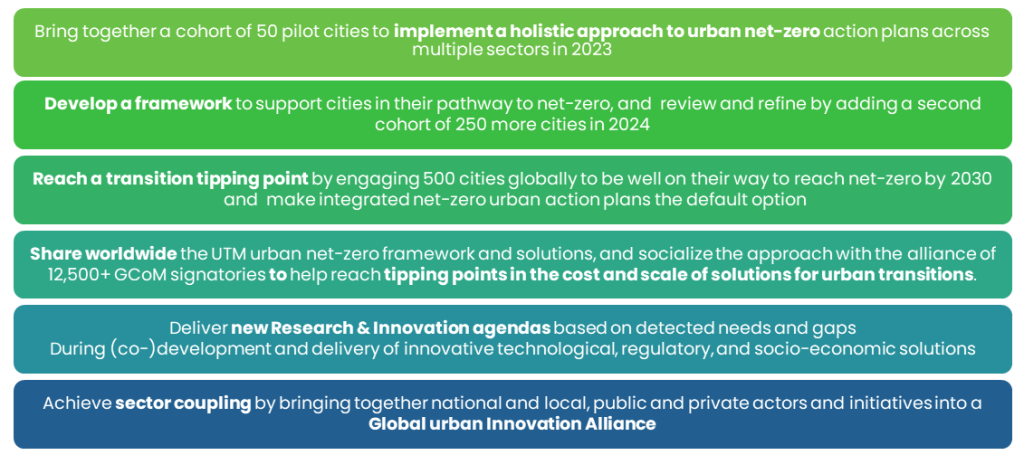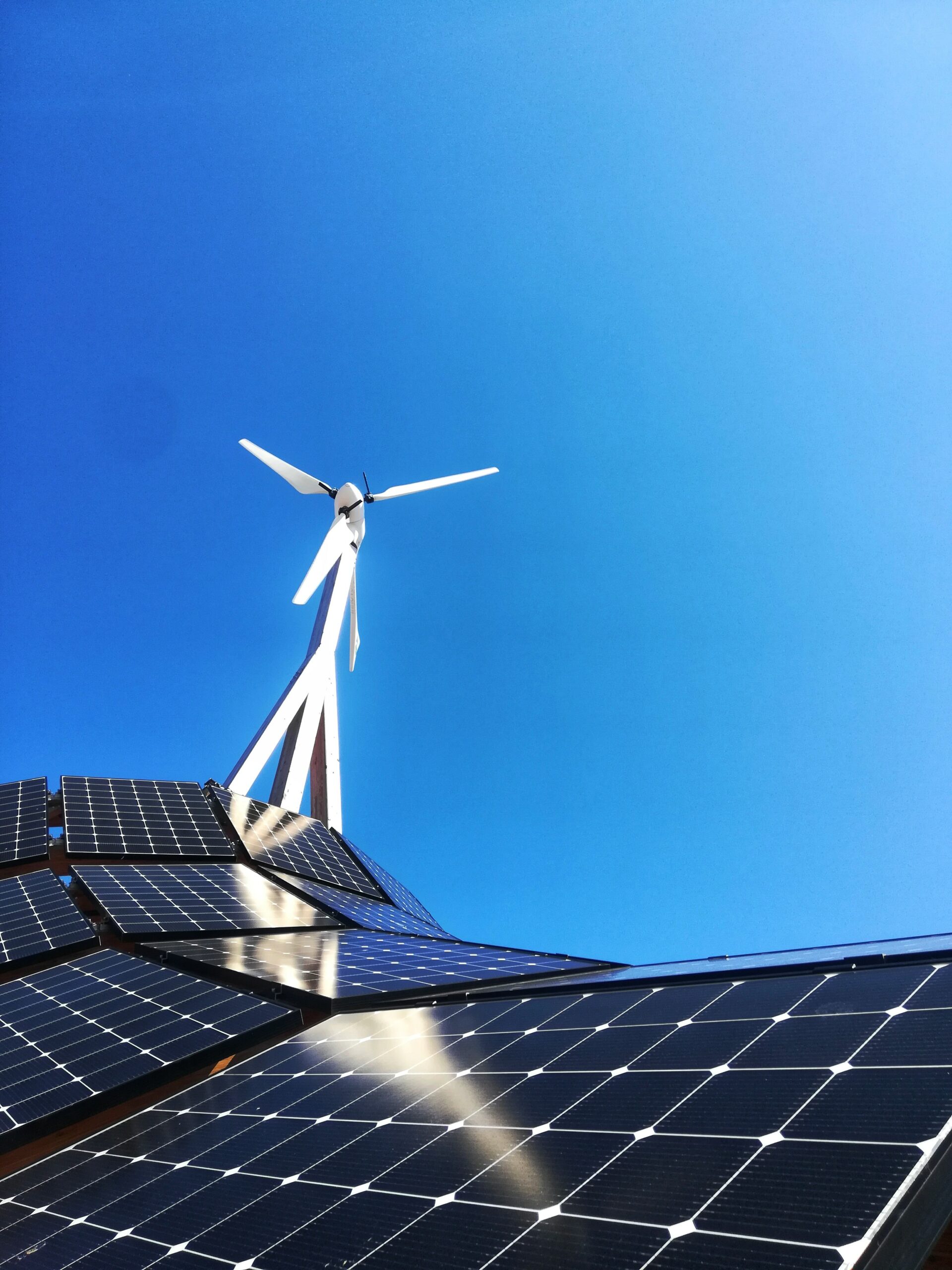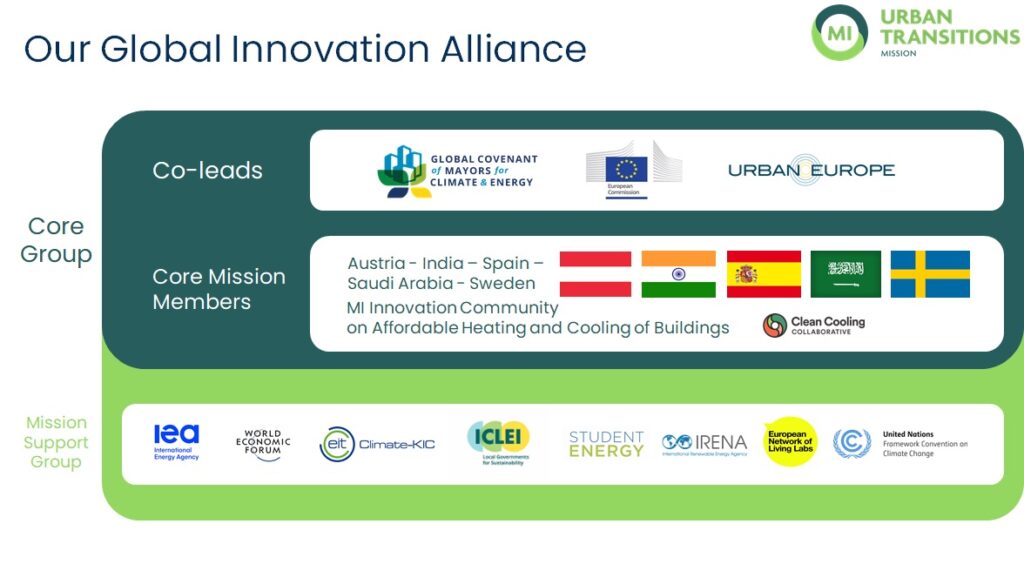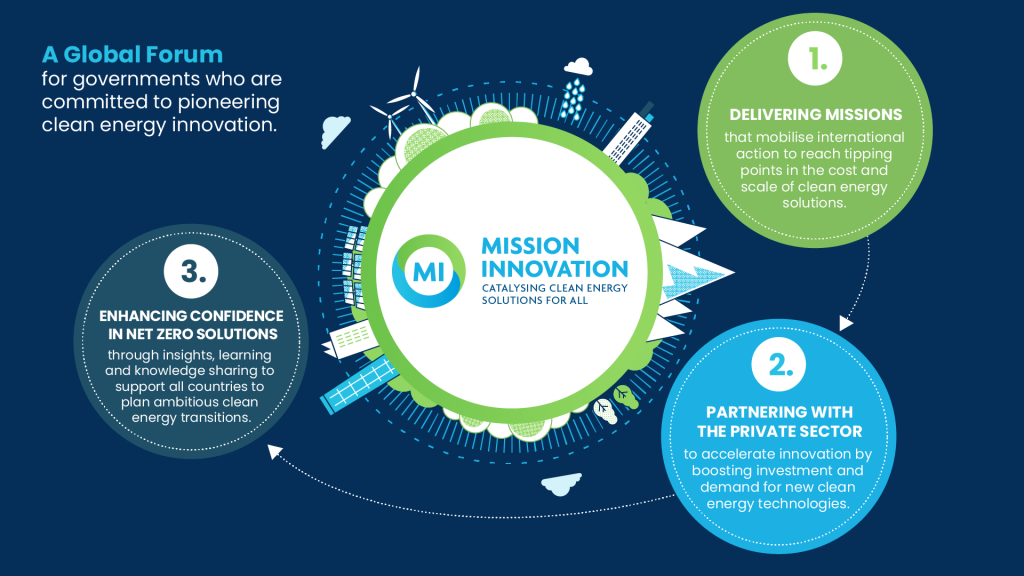About Us
An ambitious approach, driven by needs and solutions
The UTM aims to mobilize decision makers across all levels of government to prioritize climate-neutral and net-zero pathways enabled by clean energy and systemic innovation across all sectors and in urban governance.
The Mission addresses the challenges of the urban transitions via three interconnected action pillars:
- Innovative, net-zero urban transition
- Capacity building and funding for the net-zero urban transition
- City Research & Innovation (R&I) challenges for the global net-zero transition
As part of a new Global Innovation Alliance (GIA) stakeholders – including national governments of MI Countries, international institutions, academia and the private sector worldwide – are engaged in furthering the Mission`s goals through targeted activities and flagship projects under these three action pillars.
As of January 2026, 118 cities from 48 countries across the world have joined the UTM cohort and embarked on an ambitious journey towards a net-zero future.
Our Approach
UTM accelerates urban transitions by brokering access to tools, expertise and partnerships needed to succeed in their climate action journey.
It acts as THE solutions broker with a focus on implementation in view to accelerate holistic urban transitions.


About UTM
Urban Transitions Mission
The Urban Transitions Mission (UTM) was launched at the COP26 in November 2021 with the aim to increase the capacity of cities worldwide, empowering them to shape urban transitions based on robust knowledge and a strong net-zero community of support and exchange. Thanks to increased capacity and access to knowledge, cities will be able to mobilise their inherent strength and the potential of their communities – and develop their own customised solutions to effectively transition to net-zero. The Mission aims to close the gap between research, development and deployment on systemic transition pathways to net-zero, resilient and human-centred cities through multi-level, multi-sectoral, and outcome-oriented partnerships.
The Urban Transitions Mission (UTM) aims at demonstrating that systemic urban strategies along with climate resilience and social aspects of the transition can boost reliable, affordable, feasible and cost-effective solutions for reaching net-zero cities. Successful urban transitions will leverage innovative policies, technologies, financial instruments, business models and cooperative approaches. These points must be integrated for the satisfaction of citizens’ needs, building on renewable energy sources and circular economy principles and enhancing resilience for a people-centred urban transition globally.
Our Urban Net-Zero Framework
A globally designed framework helping cities to strengthen their own climate plans and strategies, prioritise actions, and reap the benefits of systemic approaches to reach their net-zero target.
Revising their existing climate and energy action plans and prioritise actions to reach net-zero, at each step of their climate action journey. Cities will showcase their innovation and progress via existing reporting commitments
Our Global Innovation Alliance
The UTM mobilises a Global Innovation Alliance (GIA) of partners, and national governments to support cities to develop, pilot, and scale innovative solutions and approaches for urban transitions.
GIA members commit to share solutions, needs and lessons learnt, and co-create innovative approaches to support UTM cities globally to be net-zero climate, resilient, and people-centred. GIA members make their knowledge and expertise available, connecting with cities across the globe via the Mission’s global knowledge exchange centre. They help replicate best practices, adapt and leverage solutions across all sectors, as well as address identified needs and gaps.
GIA members help inform, support and engage with the Urban Transitions Mission Centre (UTMC). They connect the UTM with relevant initiatives, programmes and projects addressing net-zero urban transitions and help draw attention to cities’ R&I needs, opportunities, and resources for implementation.


ABOUT MI
Mission Innovation
The Mission Innovation’s Urban Transitions Mission has been launched in the framework of Mission Innovation, which is a global initiative of 23 countries and the European Commission (on behalf of the European Union) catalysing a decade of action and investment in research, development and demonstration to make clean energy affordable, attractive and accessible for all.
Launched alongside the Paris Agreement in 2015, Mission Innovation (MI) brings together governments, public authorities, corporates, investors and academia to enable widely affordable clean energy globally and achieve the goals of the Paris Agreement. Mission Innovation is the main intergovernmental platform addressing clean energy innovation through action-oriented cooperation. Mission Innovation’s members represent over 90% of global public investments in clean energy innovation and have increased their annual investments by USD$5.8 billion since 2015.
Mission Innovation 2.0 was launched on 2 June 2021 as a global initiative catalysing a decade of action and investment in research, development and demonstration to make clean energy affordable, attractive and accessible for all. This will accelerate progress towards the Paris Agreement goals and pathways to net zero.
